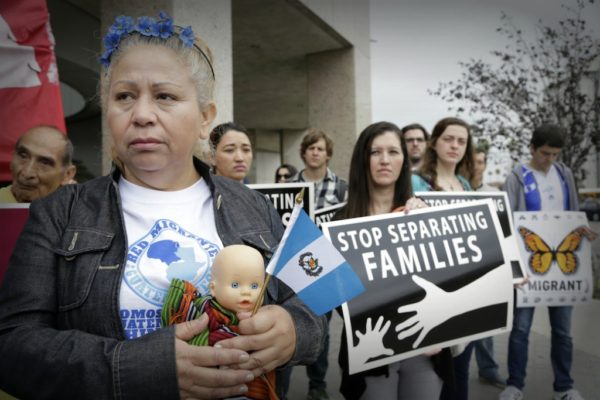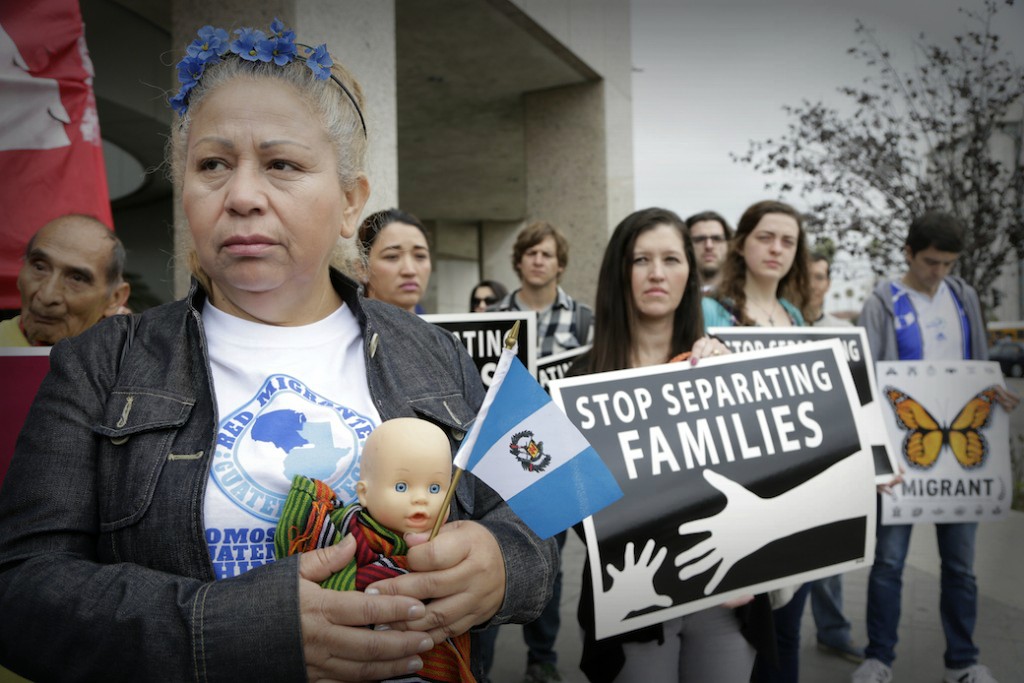
Image credit: Center for American Progress
The fates of over 300,000 undocumented immigrants lie in the hands of the Department of Homeland Security (DHS). The DHS released a statement that it would be officially be ending Temporary Protected Status (TPS) for over 57,000 Hondurans and 2,500 Nicaraguans by January 2018. The decision to rescind TPS will be made for 50,000 Haitians and over 200,000 Salvadorans (by far the largest group) as soon as this month and early next year (1). TPS is a program that was enacted in the 1990’s, following major natural disasters in Central America and Haiti. Its goal was to extend immigration status to those of specific countries fleeing national instability from natural disasters, civil wars, or other extenuating circumstances (2). It has been renewed repeatedly since then, and most individuals benefiting from this have remained in the United States for over two decades.
They have established families, careers, and their lives here — being sent back to a country that cannot support them diminishes the last 20 years of accomplishment. The Trump administration connects to this issue more broadly because of claims that the White House Chief of Staff John Kelly pressured the acting DHS Secretary, Elaine Musk, to remove TPS completely — causing her to threaten her resignation. Not only are the lives of hundreds of thousands people at stake, but so is the head of the institution that can protect them.
This is a vendetta between legality and humanitarianism: the former concerned with disregarding the temporariness of the program and the latter concerned with the unethical deportations of immigrants. Those who are in favor of ending TPS cite that:
- “TPS represents immigration policy gone awry because the program, which is supposed to be temporary, has been repeatedly extended by previous administrations” (3). It is thought to undermine the provisions set by the program and bypasses the current immigration process.
- There are no repercussions for those protected by TPS and who have entered the country illegally. Giving TPS for those who have entered illegally awards illicit behavior and incentivizes illegal immigration.
- Immigrants can contribute to their home countries when they return
Those who support TPS believe that removing this status is fundamentally unethical and unjust for those that have created their livelihoods under the protection TPS gives them. It is yet another attack on immigrants and undocumented folk who have fled their countries out of survival. Abolishing TPS for these countries is a strike against deserving immigrants with uncontrollable circumstances. It will result in:
- Tearing families apart and removing a breadwinner from the family
- Remittances to family in Latin America will drop drastically, removing support for relatives abroad that cannot afford to live in the United States (3).
- Loss of health care, jobs, insurance, and overall quality of life deportation for hundreds of thousands of immigrants (1).
- The Department of Homeland Security utilizing its limited resources on the deportations of 300,000 people already integrated into U.S society
In the past, extending the protections that come along with TPS have been used in response to the myriad of challenges these Latin American countries consistently face. However, DHS and the Trump administration have argued that conditions in these countries have improved, and foreign nationals can foster growth when they return (4). In response to this, many ask for evidence that these Latin American countries are in a state to benefit and reabsorb their mass amount of arrivals.
Countries like El Salvador and Haiti continue to experience many of the problems that led to the initial implementation of the protection status. Many, like Yanira Arias, a Salvadoran immigrant and the national campaign manager for an immigrant advocacy group, Alianza Americas, are simply “not ready to return to El Salvador, which has one of the highest rates of violence against women in the region” (3). The ambassador of Haiti, the poorest country in the world, has requested that Trump extend the TPS program due to the country’s challenges it continues to face — like flooding from recent hurricanes exacerbating efforts to rebuild after the 2010 earthquake. There is an inability to reabsorb all Haitian immigrants (4).
The current decision in place is controversial not only for humanitarian reasons, but will also be a blow to the country economically. The Center for Migration Studies estimates that the “labor force participation rate for TPS recipients from El Salvador, Honduras and Haiti ranges from 81 to 88 percent, which is significantly higher than the rate for the entire U.S. population” (3).
Another option that supporters of TPS strive for would include giving permanent residency to those currently using TPS, and awarding amnesty. The benefit to this would be that the United States will avoid a massive transition of policies and exodus of the population. These immigrants can continue to stay in the country and avoid all the disastrous consequences of being forcibly removed by the government. The United States could also continue to profit economically from the labor, goods, and services this group produces.
The most humane and reasonable solution, fiscally and socially, would be to permanently absorb TPS beneficiaries as citizens or permanent residents. Those concerned about the disregard for legality do not take into account the gravity of the situation, and all the lives at stake in this dilemma. The lives of the 300,000 that have been here long enough to raise families and find success for themselves and children, as well as the lives of the millions of Americans that benefit and profit off the existence of this group in the country.
Take Action
For a clear and concise breakdown on what Temporary Protected Status is, please watch: https://youtu.be/ThWk7-fkmX8. To hear how TPS has affected the lives of TPS beneficiaries, watch: https://youtu.be/PxeVIHOhutw. If you are wishing to learn more about an organizing efforts that support TPS and want to donate, please visit: https://savetps-carecenla.nationbuilder.com/donate.
Citations
- https://www.washingtonpost.com/world/national-security/immigrants-from-central-america-haiti-await-dhs-announcement-on-protected-status/2017/11/06/7b690c80-c305-11e7-84bc-5e285c7f4512_story.html?utm_term=.b1692da30ee5
- https://www.uscis.gov/humanitarian/temporary-protected-status
- https://www.npr.org/2017/11/10/563333761/central-american-immigrants-brace-for-end-of-temporary-protected-status-program
- http://www.miamiherald.com/news/nation-world/world/americas/article177922561.html




